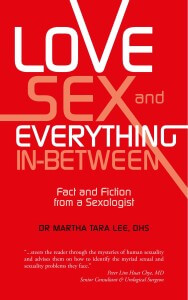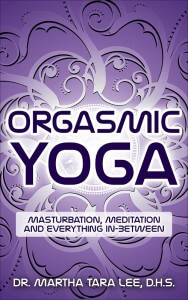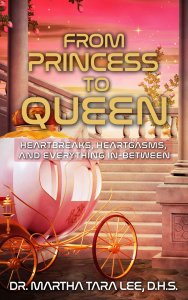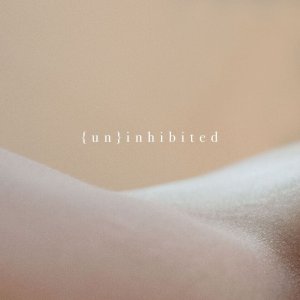
As a Relationship Counselor and Clinical Sexologist, one of the frequent inquiries I encounter pertains to the concepts of sex addiction, porn addiction, and sex toy addiction. These terms are prevalent in popular culture and media, yet they lack recognition as formal diagnoses by major psychological and psychiatric associations such as the World Health Organization (WHO) and the American Psychiatric Association (APA). In scholarly discourse, these constructs are often critiqued for their ambiguity and potential to stigmatize rather than illuminate understanding (Levin, 2020; Kafka, 2010).
Let’s delve into sex addiction first. The notion of sex addiction posits that individuals experience an overpowering compulsion to engage in sexual activities, leading to adverse consequences in their lives (Kafka, 2010). However, empirical evidence supporting sex addiction as a clinical disorder remains contentious and inconclusive (Griffiths, 2012). Many experts argue that what is commonly labeled as sex addiction may more accurately reflect underlying psychological issues such as anxiety, depression, or unresolved trauma (Levin, 2020).
Similarly, the concept of porn addiction has stirred debate within academic circles. While some individuals report feeling addicted to pornography consumption, this phenomenon is not recognized as a diagnosable mental health condition by authoritative bodies (Grubbs et al., 2019). Research suggests that the perception of porn addiction is often influenced by cultural and moral frameworks rather than scientific evidence (Grubbs et al., 2019).
Regarding sex toy addiction, academic literature offers little support for its existence as a medical diagnosis. The use of sex toys is commonly viewed as a healthy and consensual form of sexual exploration that can enhance intimacy and pleasure (Bianchi-Demicheli et al., 2016).
The persistence of these terms in popular discourse can be attributed to their utility in moral and social narratives surrounding sexuality. By labeling individuals as “sex addicts” or “porn addicts,” society may inadvertently perpetuate stigma and shame around natural sexual behaviors (Kafka, 2010; Griffiths, 2012).
As a proponent of a sex-positive approach to sexuality, I advocate for understanding sexual behaviors within their broader contexts. Embracing a sex-positive perspective acknowledges that diverse sexual expressions are normal and healthy aspects of human experience (Levin, 2020). Rather than pathologizing certain behaviors, it is essential to promote comprehensive sexual education and foster open dialogues that prioritize sexual health and well-being (Grubbs et al., 2019).
For individuals grappling with issues related to sex, porn, or sex toys, seeking professional guidance from qualified therapists or sexologists like myself can provide valuable support and resources. These professionals offer a safe space for exploring one’s sexuality without judgment, facilitating discussions on communication skills and emotional well-being (Bianchi-Demicheli et al., 2016).
While terms like sex addiction, porn addiction, and sex toy addiction are pervasive in popular discourse, their clinical validity remains uncertain. Embracing a sex-positive perspective and seeking evidence-based understanding can empower individuals to navigate their sexual health without stigma. If you have concerns or questions about sexual behaviors or would like to explore your sexuality in a supportive environment, I encourage you to reach out to a qualified sexologist or therapist like myself. Together, we can foster a more informed and inclusive approach to sexual well-being.
References
Bianchi-Demicheli, F., Courtois, R., Darwiche, J., Graziottin, A., & Bitzer, J. (2016). Sexology in medical education: The importance of providing a comprehensive medical curriculum on human sexuality in European medical schools. The Journal of Sexual Medicine, 13(5), 755-763. https://doi.org/10.1016/j.jsxm.2016.03.362
Griffiths, M. D. (2012). Internet sex addiction: A review of empirical research. Addiction Research & Theory, 20(2), 111-124. https://doi.org/10.3109/16066359.2011.588351
Grubbs, J. B., Perry, S. L., Wilt, J. A., & Reid, R. C. (2019). Pornography problems due to moral incongruence: An integrative model with a systematic review and meta-analysis. Archives of Sexual Behavior, 48(2), 397-415. https://doi.org/10.1007/s10508-018-1346-9
Kafka, M. P. (2010). Hypersexual disorder: A proposed diagnosis for DSM-V. Archives of Sexual Behavior, 39(2), 377-400. https://doi.org/10.1007/s10508-009-9574-7
Levin, M. E. (2020). The case against sex addiction as a psychiatric diagnosis. Sexual Addiction & Compulsivity, 27(1-2), 1-27. https://doi.org/10.1080/10720162.2019.1644239
About Dr. Martha Tara Lee
Dr. Martha Tara Lee has been a passionate advocate for positive sexuality since 2007. With a Doctorate in Human Sexuality and a Masters in Counseling, she launched Eros Coaching in 2009 to help individuals and couples lead self-actualised and pleasurable lives. Her expertise includes working with couples who have unconsummated marriage, individuals with sexual inhibitions and discrepancies in sexual desire, men with erection and ejaculation concerns, and members of the LGBTQIA+ and kink communities. Dr. Lee welcomes all sexual orientations and is available for online and face-to-face consultations. Martha speaks English and Mandarin.
She is the only certified sexuality educator by the American Association of Sexuality Educators, Counselors and Therapists (AASECT) in the region (as of 2011) and is also an AASECT certified sexuality educator supervisor (as of 2018). She strives to provide fun, educational, and sex-positive events and is often cited in the media including Huffington Post, Newsweek, South China Morning Post, and more. She is the appointed Resident Sexologist for Singapore Cancer Society, Of Noah.sg, OfZoey.sg, and Virtus Fertility Centre. She is the host of radio show Eros Evolution for OMTimes Radio. In recognition of her work, she was named one of ‘Top 50 Inspiring Women under 40’ by Her World in July 2010, and one of ‘Top 100 Inspiring Women’ by CozyCot in March 2011. She is the author of Love, Sex and Everything In-Between (2013), Orgasmic Yoga: Masturbation, Meditation and Everything In-Between (2015), From Princess to Queen: Heartbreaks, Heartgasms and Everything In-Between (2017), and {Un}Inhihibited (2019).
You can read the testimonials she’s received over years here. For her full profile, click here. Email her here.

 Become a Patron!
Become a Patron!





